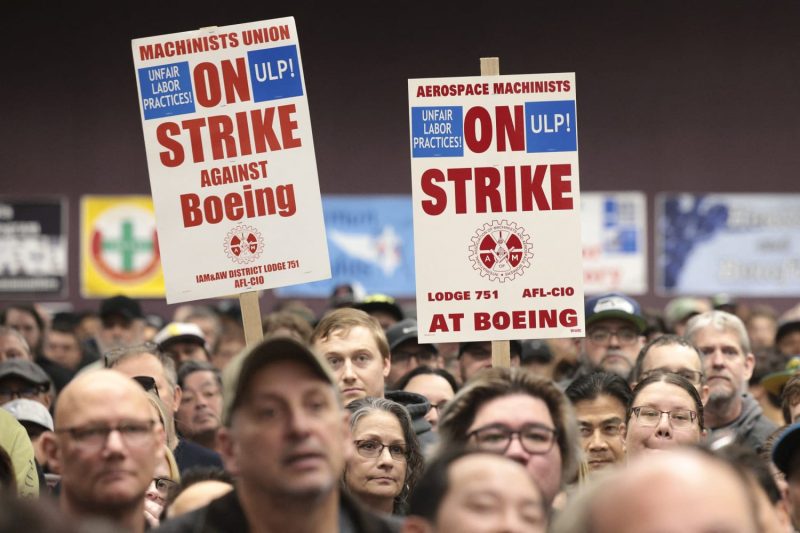The recent rejection of a new labor contract by Boeing machinists has further extended the strike at the company’s facilities. The decision to decline the proposed agreement sheds light on the underlying issues and challenges faced by workers in the aerospace industry.
One of the key reasons behind the rejection of the contract is the concern over job security and the impact of outsourcing on the workforce. Boeing machinists are apprehensive about the company’s plans to shift some production work to other locations, which could potentially result in job losses for local employees. This fear is exacerbated by the ongoing trend of outsourcing in the aerospace sector, where companies seek to minimize costs by moving production to cheaper labor markets.
Moreover, the rejection of the contract reflects a broader sense of dissatisfaction among workers regarding wages and benefits. Many machinists feel that the proposed terms fail to adequately address their economic needs and do not provide sufficient compensation for the demanding nature of their work. As the cost of living continues to rise, employees are increasingly seeking fair and competitive remuneration packages that reflect their contributions to the company.
Additionally, the rejection of the contract underscores the importance of effective communication and collaboration between management and labor. To ensure a harmonious relationship and avoid prolonged strikes, it is crucial for companies to engage in meaningful dialogue with workers, address their concerns, and involve them in decision-making processes that affect their livelihoods. By fostering a culture of transparency and respect, organizations can build trust and mutual understanding with their workforce.
Looking ahead, it is essential for Boeing and its machinists to find common ground and work towards a mutually beneficial resolution. Both parties must prioritize dialogue and compromise to reach a new agreement that addresses the core issues raised by the workforce. By recognizing the value of their employees and prioritizing their well-being, companies can establish a positive working environment that promotes productivity, loyalty, and long-term success.
In conclusion, the rejection of the new labor contract by Boeing machinists highlights the complex challenges faced by workers in the aerospace industry. By addressing concerns related to job security, wages, and communication, companies can foster a more positive relationship with their workforce and create a sustainable path towards progress and prosperity. It is imperative for all stakeholders to collaborate and find common ground to ensure a harmonious and productive working environment for the benefit of both employees and the company as a whole.


























